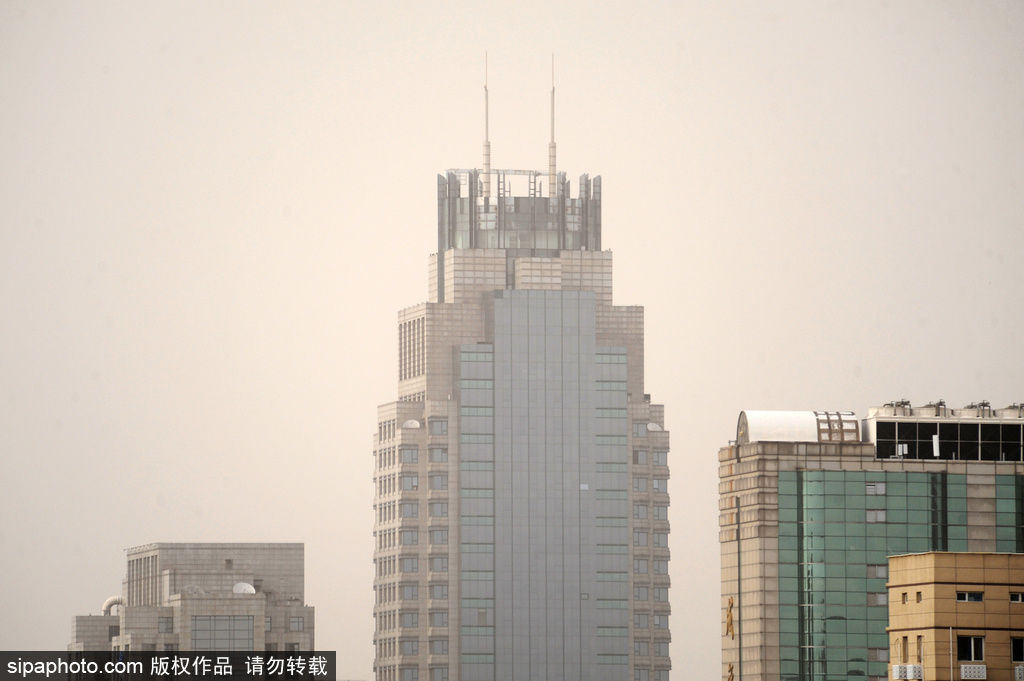
Air pollution in Beijing in April, 2020. (Photo: Sipa)
Vehicles, chemical plants and coal damage Beijing-Tianjin-Hebei region
High levels of emissions from heavy chemical plants and vehicles, the burning of coal and reduced environmental capacity are the major reasons for frequent heavy air pollution in the Beijing-Tianjin-Hebei region and neighboring areas in fall and winter, a senior official said on Friday.
"The quantity of most pollutants detected in the region exceeds the environment's capacity by more than half, which is the root cause for heavy air pollution," said Zhao Yingmin, vice-minister of ecology and environment. "Air pollutants per unit of land in the region are two to five times the national average."
These emissions largely stem from clusters of heavy chemical plants, heavy reliance on coal burning for energy and on road vehicles for freight transport, he added, citing a three-year investigation into the causes of and solutions for heavy air pollution in the region, particularly in fall and winter. The research wrapped up last month.
In fall and winter, air quality further deteriorates as coal consumption increases to provide residential heating. "It is estimated that burning coal for heat increases total air pollutants by about 30 percent," Zhao said.
Another significant cause of severe air pollution is high concentrations of nitrogen oxides and volatile organic compounds, which can interact with sunlight and convert gas pollutants in the air into PM2.5 particulate matter.
"Since 2013, the level of such converted PM2.5 has increased by 10 percentage points to 50 percent and sometimes accounted for 60 percent of total particulate matter during heavily polluted days," Zhao said.
In the meantime, the geography of the region determines that pollution generated locally is harder to disperse, especially during fall and winter. Research also found that pollutants traveling from outside into Beijing and Tianjin play a role in worsening local air quality, he added.
"Due to these factors, 90 percent of days with severe pollution are in fall and winter, which is a disturbing concern for the public," Zhao said, adding that the government will continue prioritizing the prevention and control of air pollution during these seasons and deploy more science-based and targeted measures.
Chai Fahe, deputy director of the National Joint Research Center on Air Pollution Causes and Control and an expert involved in the research program, said that in recent years, overall air quality in the region is improving, with fewer heavily polluted days reported each year.
"However, the quantity of pollutants will remain relatively large in the region as long-term structural reforms of the energy, industry and transportation sectors will not be finished in one stroke," he said.
"People should be prepared for some severe air pollution in the fall and winter, especially during unfavorable weather conditions."


